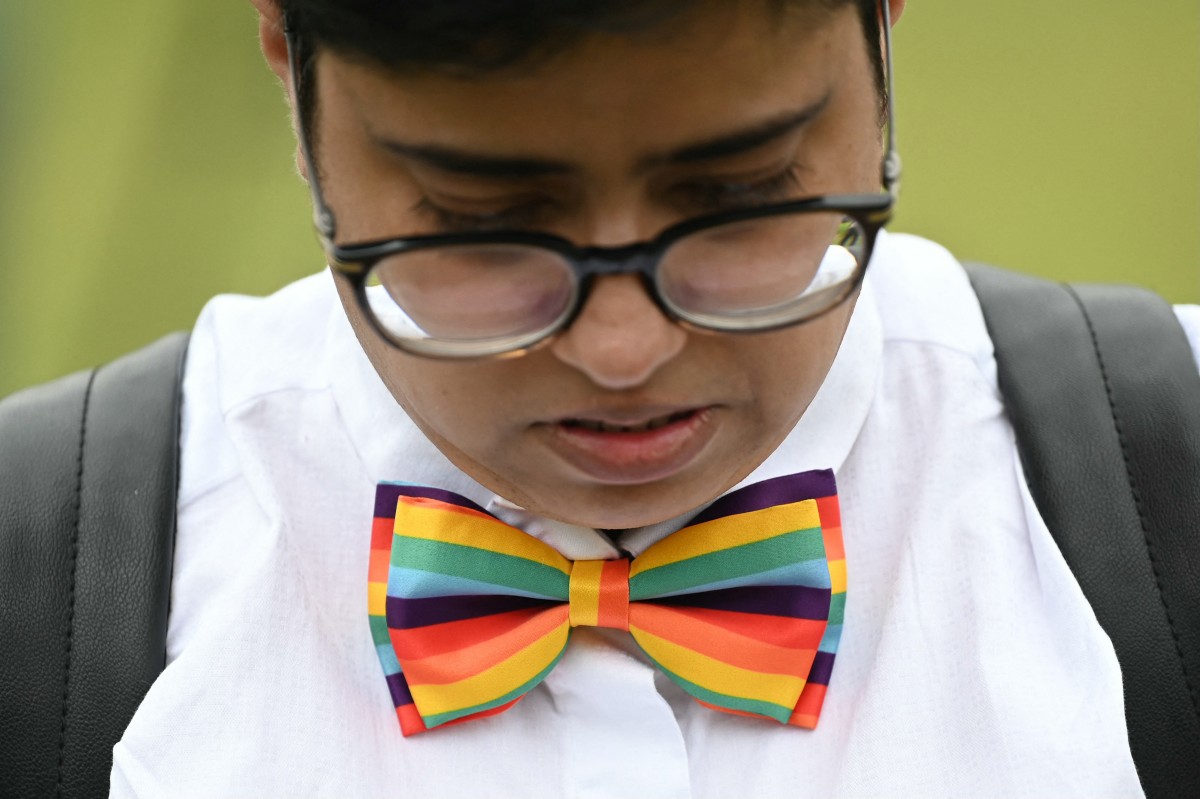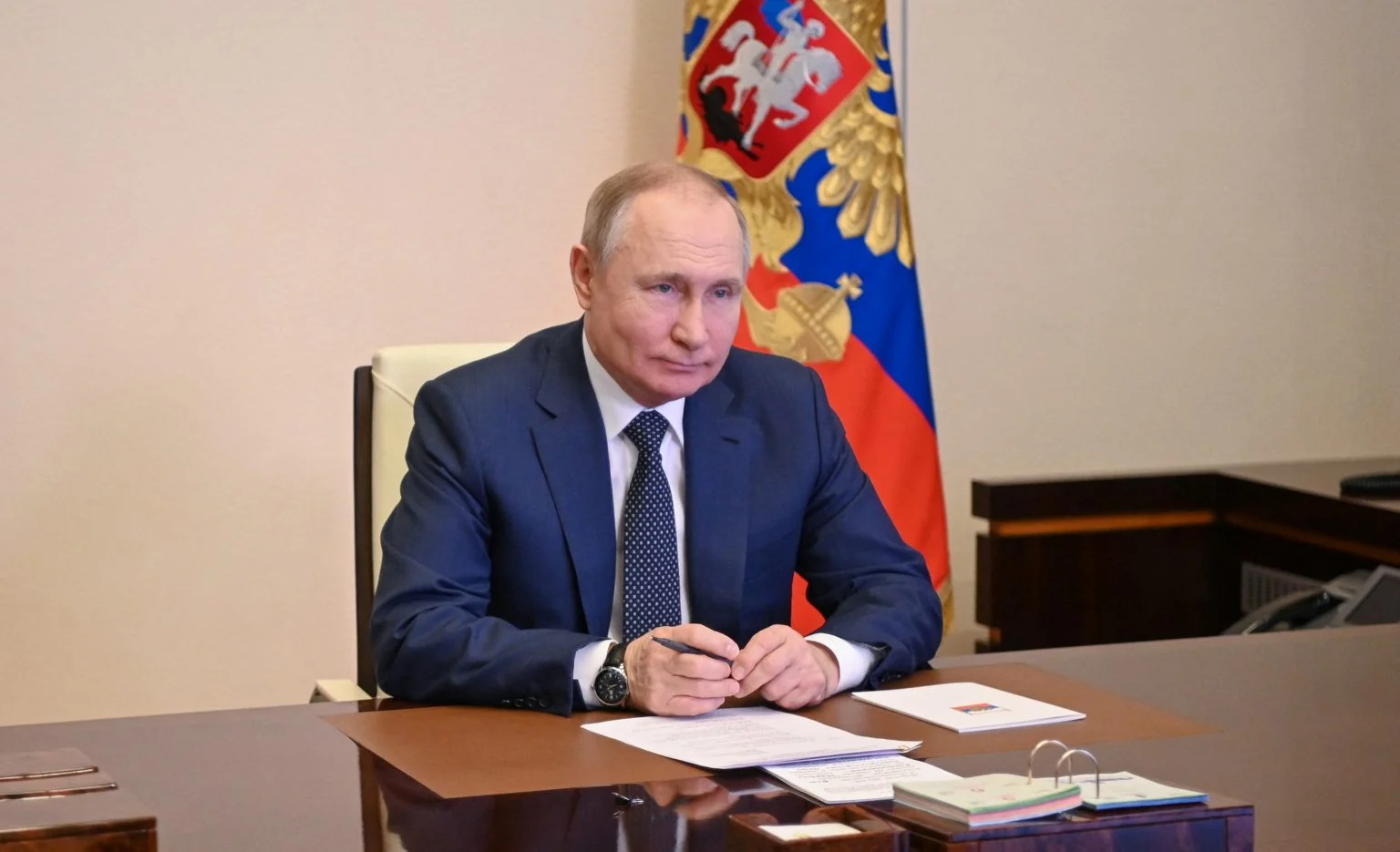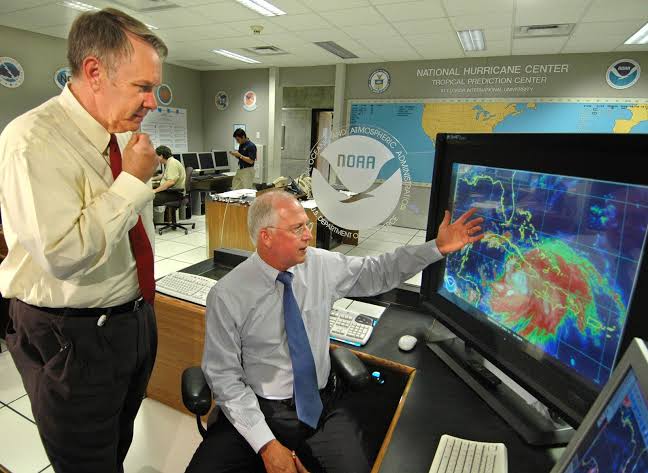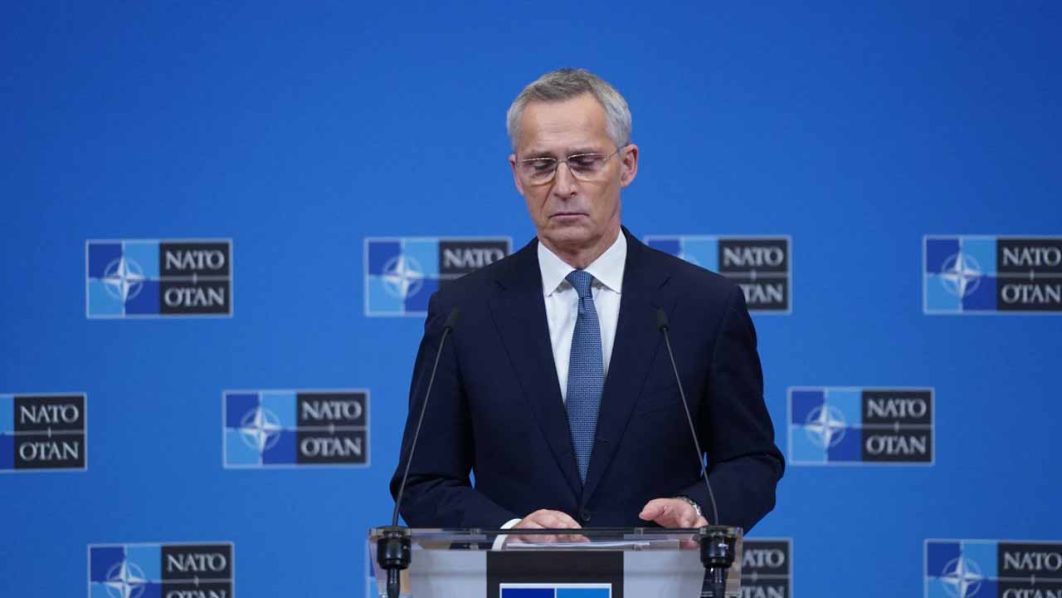World News
India’s top court refuses to legalise same-sex marriages

India’s highest court declined to legalize same-sex marriages on Tuesday but emphasized that the country has a responsibility to recognize LGBTQ relationships and protect them from discrimination.
Prime Minister Narendra Modi’s government has been opposing efforts to legally codify same-sex partnerships for the past five years, ever since the Supreme Court invalidated colonial-era laws that banned gay sex.
Earlier this year, lawyers representing several same-sex couples had urged the court to grant full legal recognition to their relationships. However, the five-member bench ruled that the decision to extend marriage equality should be made by the parliamentary authorities.
Chief Justice D.Y. Chandrachud stated during the verdict that determining the law on marriage is within the purview of the parliament and state legislatures.
The court’s ruling indicated that the fundamental right to marriage for same-sex couples is not guaranteed by India’s constitution under current legislation. However, it did grant marriage rights to couples where one or both members were transgender, provided that one participant identified as a man and the other as a woman.
Chandrachud added that India still has an obligation to acknowledge same-sex relationships and safeguard those involved from discrimination. He stated, “Our ability to feel love and affection for one another makes us feel human. This court has recognized that equality demands that queer unions and queer persons are not discriminated against.”
The verdict was met with sadness and disappointment by a crowd gathered outside the court who had hoped to celebrate India becoming the second Asian jurisdiction, after Taiwan, to legalize same-sex marriages.
Siddhant Kumar, a 27-year-old in the crowd, expressed dissatisfaction with the court’s decision and emphasized the ongoing struggle for legal recognition.
The petitioners had argued that validating same-sex marriage would enable them to access the legal benefits of matrimony, including adoption, insurance, and inheritance.
However, Modi’s government, which leans towards Hindu nationalism, has consistently opposed same-sex marriage and maintained that any change should come through parliamentary action rather than court decisions.
The government’s submission stated that any interference would disrupt the balance of personal laws in the country and societal values. It argued that same-sex relationships and sexual activity were not compatible with the Indian family unit concept of a husband, a wife, and children.
Siddhant Rai, a 20-year-old among the crowd outside the court, expressed disappointment with the ruling and did not foresee a favorable judgment in the near future under the ruling Bharatiya Janata Party (BJP).
In India, marriage is governed by family laws specific to various religions, such as the Muslim Marriage Act and the Hindu Marriage Act.
A significant ruling in 2018 had already struck down the British colonial-era law criminalizing gay sex. Last year, the court ruled that unmarried partners and same-sex couples were entitled to welfare benefits.
Acceptance of gay couples has been on the rise in India following the 2018 ruling. A June Pew survey suggested that 53 percent of Indian adults supported same-sex marriage, while 43 percent opposed it.
However, leaders from major religions in India, including Hindu, Muslim, Jain, Sikh, and Christian leaders, oppose same-sex unions, with many arguing that marriage is intended for procreation, not recreation.
While over 30 countries allow same-sex marriage, others recognize same-sex civil unions. In Asia, Taiwan became the first to allow gay marriage after a landmark ruling by its Constitutional Court in 2017, and other countries like Vietnam, Thailand, and Nepal have taken steps toward recognizing same-sex partnerships.
World News
Putin: This is not free, fair election – British official criticises Russia poll

British Foreign Secretary, Lord Cameron, has denounced the election in Russia, where President Vladimir Putin solidified his control over power by stifling any genuine opposition.
Preliminary results released on Sunday indicated that Putin secured nearly 88% of the vote in the election.
If confirmed, this outcome from Russia’s Central Election Commission would mark a record victory for Putin, prolonging his rule for another six-year term.
Only three candidates ran against the president in the election.
According to reports, these candidates refrained from criticizing Putin’s leadership or his intervention in Ukraine.
It is alleged that any serious contenders were removed before the voting began.
prominent critic Alexei Navalny died in an Arctic prison last month, while other opponents of the president’s regime are either imprisoned or in exile.
Meanwhile, the election underwent minimal independent monitoring, as the Organisation for Security and Co-operation in Europe (OSCE) was not invited to observe the three-day voting process.
Responding to the election’s conduct, Cameron took to his official Twitter account to express his dismay, stating, “this is not what free and fair elections look like.”
He added, “The polls in Russia have closed amid illegal elections held on Ukrainian territory, limited voter choice, and the absence of independent OSCE monitoring. This does not resemble free and fair elections.”
World News
In 25 Minutes, 13 Earthquakes Hit California

Overnight, California experienced a sequence of 13 earthquakes within just 25 minutes, as confirmed by the National Weather Service (NWS).
According to US authorities, the initial earthquake occurred shortly after midnight on Monday, striking northwest of El Centro, a city situated in the southern border region. The United States Geological Survey (USGS) reported the quake as registering a magnitude of 4.8 and causing significant shaking across San Diego County.
A 4.5 magnitude aftershock followed merely six minutes later, originating west of the Salton Sea, as stated by the USGS. This was succeeded by a series of smaller aftershocks.
Meteorologists attribute these seismic events to the San Jacinto fault system, recognized as one of the most active faults in southern California.
The initial quake struck at 12:36 am on Monday, with its epicenter located 11.7 miles deep, as revealed by the USGS. The occurrence of this quake, along with twelve subsequent ones, triggered a shake alert issued by the USGS.
World News
NATO chief tells Turkey ‘time has come’ to let Sweden join

NATO Secretary General Jens Stoltenberg urged Turkey on Monday to expedite the approval of Sweden’s pending membership, stating that it should be done “as soon as possible.” Stoltenberg emphasized that Sweden has fulfilled its commitments, and now it is crucial for Turkey to conclude the accession process.
As of now, Turkey and Hungary are the only NATO member states that have not ratified Sweden’s bid for membership, despite Sweden applying for it over 18 months ago. The Turkish parliament initiated discussions on Sweden’s membership earlier this month, following President Recep Tayyip Erdogan’s initiation of the process after a NATO summit agreement in July.
While the other 29 NATO allies had hoped to officially welcome Sweden into the alliance during a foreign ministers’ meeting in Brussels this week, the process is currently in the committee stage in the Turkish parliament.
Expressing his desire for a swifter ratification process, Stoltenberg remarked, “I would have liked to see more speed in the ratification process, that’s no secret. I would like them to finalize that, and that’s exactly what I have communicated many times.”
-

 World News7 months ago
World News7 months agoWhat we know about Israel’s war with Hamas
-

 Sports7 months ago
Sports7 months agoLaLiga: Everyone want to play with him – Vinicius on player Real Madrid should sign
-

 World News7 months ago
World News7 months agoIran calls on Islamic, Arab countries to confront Israel
-

 Tech7 months ago
Tech7 months agoTop 10 AI Skills to Learn in 2023
-

 Entertainment7 months ago
Entertainment7 months agoBET Hip-Hop Awards: Black Sherif wins big as Burna Boy loses seven nominations
-

 Entertainment7 months ago
Entertainment7 months ago‘Black Panther’ star Lupita Nyong’o breaks up with boyfriend, Selema Masekela
-

 ICT8 months ago
ICT8 months agoApple Bows To EU, Unveils iPhone With USB-C Charger
-

 World News7 months ago
World News7 months agoZelensky seeks defences for winter on visit to NATO


